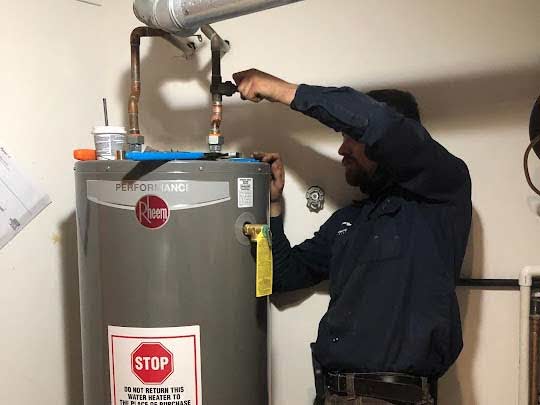
Before you get a new water heater for your home, it will be proper to know about the types, parts, and how they work. As Volusia County Management says, all these will help you to choose the most suitable water heaters for your home and guide you on their maintenance. In this article, we will discuss the basics of water heaters.
There are five different types of water heaters. These include:
Condensing water heaters
Condensing water heaters with an efficiency rating of 98% are among the most efficient. They are durable and can last between 10 to 15 years. Also, condensing water heaters are suitable for homes using natural gas as their primary energy source and may come as tank-type or tankless versions. The tankless condensing water heaters produce instant and quick hot water.
Tankless water heaters
As the name implies, tankless water heaters have no tank. However, they come with super-heated coils. Tankless water heaters are about 80% efficient. They do not continuously heat water when the temperature goes down or lose heat.
Tankless water heaters are suitable for large families requiring large quantities of hot water. These heaters are durable and have a life span of over 20 years.
Conventional storage-tank water heaters
These are the easiest to install and most affordable types of water heaters. They are common in most homes. Conventional water heaters have tanks for storing water. When you turn them on, these tanks send hot water to the showers and faucets.
The downside of this water heater is that its storage capacity depends on the tank’s size. When the tank empties, you will have to wait until it refills and gets hot before you can use hot water again. Sometimes it takes up to an hour.
Heat pump/ Hybrid water heater
These heaters are among the most energy-efficient and cost-efficient water heaters. They appear like the conventional storage-tank water heater. However, they are more suitable for areas with higher temperatures (40 – 50°c). Heat pumps use heat energy from the ground and the surrounding air. For this reason, they are not suitable for regions with colder atmospheric temperatures.
Solar water heaters
As the name implies, solar water heaters use solar energy to heat water. They depend solely on power from the sun to function. These water heaters will help you reduce your utility bills because they are not using electricity or gas. They come with roof-mounted panels that transfer heat through a closed roof system to the water tank for heating. They also come with insulators that will keep the water hot all day.
Solar water heaters are among the most durable heaters. They can last for over 20 years. However, this water heater is unsuitable for regions with little sunlight or colder climates.
Water heaters have several parts and components. Most of them include:
- Thermocouple to monitor pilot flame.
- Elements to transfer heat in an electric-powered water heater.
- Insulation: To prevent energy loss from the tank.
- Flue pipe: To empty poisonous gases.
- Overflow pipe: To allow water to drain.
- Hot water outlet: Allows hot water to flow into the shower and faucets.
- Dip tube: Allows water to enter the tank from water sources.
- Burner: Common in gas-powered heaters. It ignites natural gas to heat the tank.
- Valves: includes gas supply valves, temperature/pressure relief valve, drain valve, thermostat, and cold water shut-off valve.
- Draft diverter: Collects gas and sends it to the flue pipe.
- Anticorrosion anode prevents water tanks from rusting.
How water heaters work
Tankless water heaters
Tankless water heaters run on electricity or a gas burner. They have a heating coil inside the system that helps to heat the water whenever you want it. Tankless water heaters do not store water. Instead, they heat water only when it comes in contact with the coil. The coil heats the water and sends it through the pipes to the faucets or shower.
Tank-type water heaters
Tank-type water heaters come with three pipes that carry water. Two pipes bring cold water into the tank for heating, while one takes hot water away from the tank. A shut-off valve controls water flow from the pipe into the tank through the dip tube. When you turn on the water heater, the components inside the tank heat the water. At the boiling point, the hot water may rise to where it enters the pipe and is ready for use.
The bottom line
Water heaters are among the essential appliances to have in the home. You can hire water heater installation service from a local plumber to help you choose the most suitable one for your home, budget, and location.

